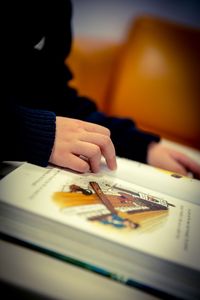Mixed results for the German education system in the Progress in International Reading Literacy Study (PIRLS) 2016

Since 2001 Germany has taken part in the IGLU study (known worldwide as Progress in International Reading Literacy Study – PIRLS), which every five years measures and compares reading comprehension, reading habits and attitudes to reading in nine and ten-year-old primary school pupils around the world. In the tests children are presented with literary and informative texts of varying difficulties. They are also asked to fill in a questionnaire to collect information on the regularity with which they read as well as social markers such as the number of books at home or the social background of their parents.
A total of 47 states and 10 regions took part in the current PIRLS study. In Germany 4227 pupils were surveyed in a total of 208 schools.
Summary of the most important PIRLS findings
• The reading performance of pupils in Germany in 2016 (537 points) had not significantly changed in comparison with 2001 (539 points). However, Germany slipped internationally from being in the top 5 to the middle of the table, as twenty nations significantly increased their averages. The percentage of both high-achieving and under-achieving pupils has clearly increased (under-achieving pupils 2001: 16.9%, 2016: 18.9%; high-achieving pupils 2001: 8.6%, 2016: 11.1%).
• The social background of children in Germany remained a decisive factor. In households that had more books and where the parents were more highly qualified the children were more capable of reading and comprehending texts.
• Difference due to migration background has not changed significantly when compared with the results from 2001; ‘in 2016 the learning disadvantage of children with migration backgrounds was between half (24 points; one parent born abroad) and a whole school year (48 points; both parents born abroad)’. (BMBF press release: 131/2017, 05.12.2017).
• Gender differences also remained comparable with 2001 in that girls tend to read better and to enjoy reading more than boys. A fact reflected in the findings from all participating countries.
It is important for German education policy that the findings lead to action to improve equality in education and to better integration for children with migration backgrounds so that reading performance among the increasingly heterogeneous pupils can be improved and Germany can catch up again internationally.
Editorial staff (alb)
Sources
Image source: image from laterjay / CC0 1.0
Reference: Spiegel 05.12.17, Federal Ministry for Education and Research 05.12.17